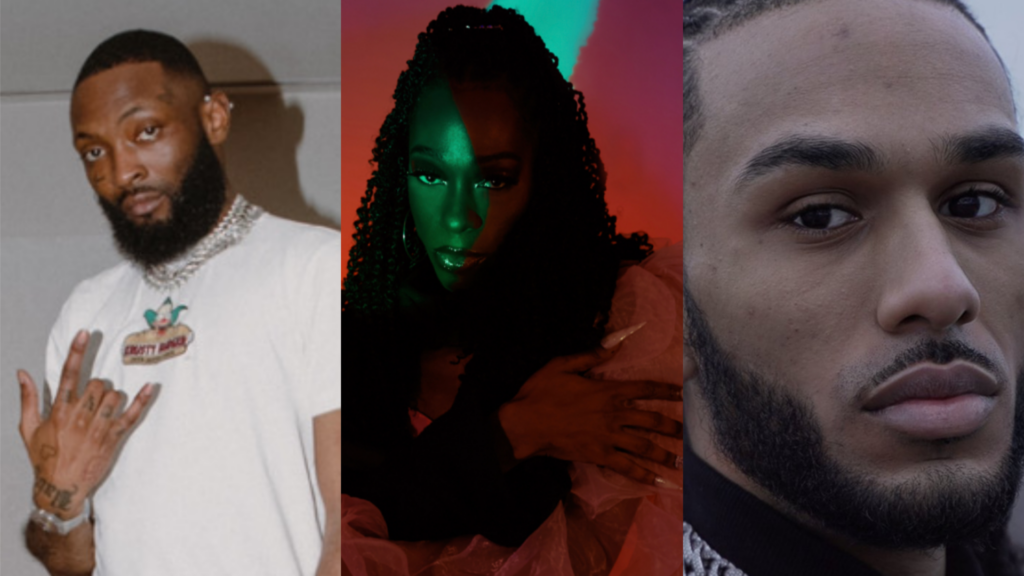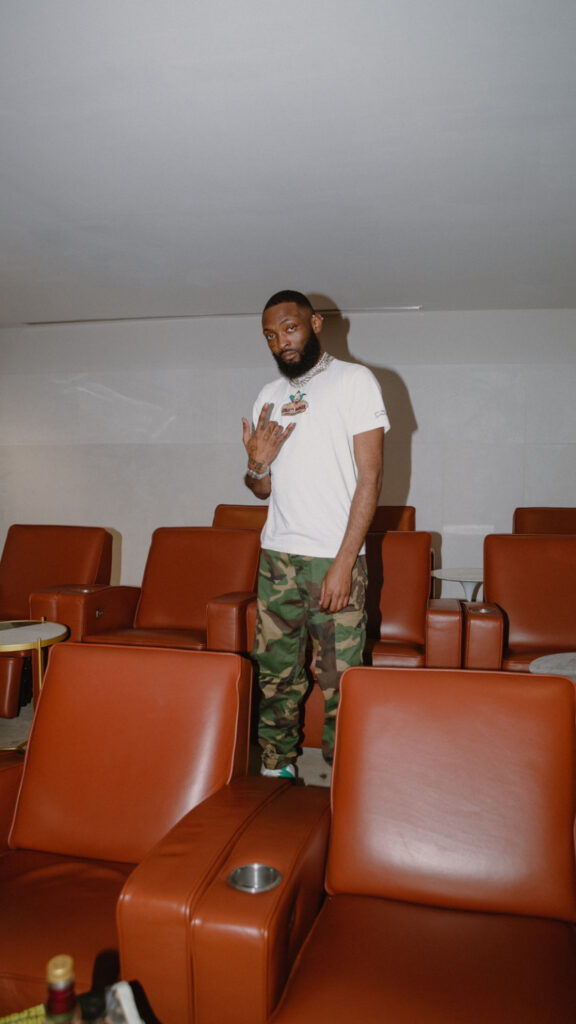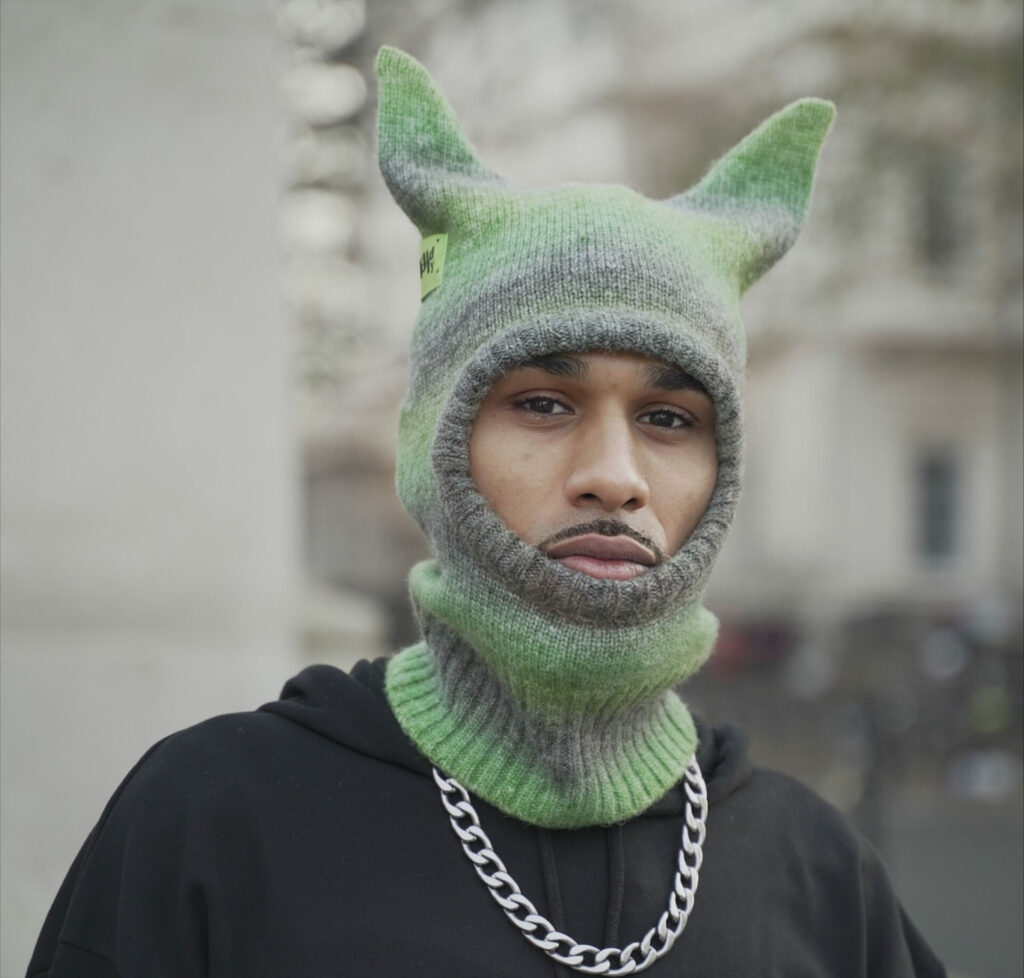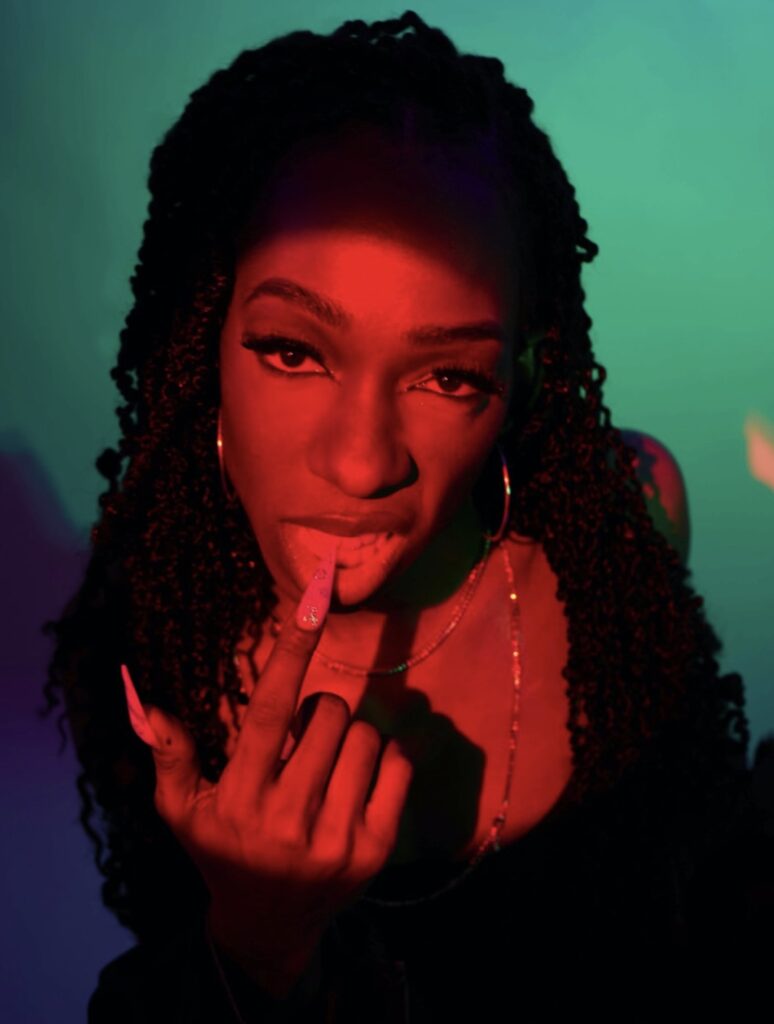Black History Month: 3 Black & Queer artists changing the game in the British music industry
Exclusive: "If I hear a beat, it's like I can hear every word - the words come like that"

October marks Black History Month in the UK, seeking to honour the triumphs and struggles of Black people past and present.
Attitude speaks to three pioneering music artists based in the UK, making waves across the nation and beyond.
Carter The Bandit, King Dee and Karnage are amongst some of the most exciting Black and Queer names in the game right now.
We hear from the compelling trio about their impact on the music scene so far, and where they’re heading next.

Carter The Bandit
Originally from Peckham, South East London, Carter the Bandit is heavily active within the industry, representing the Black and Queer Communities. “I started off dancing and getting booked to dance,” imparts Carter. “I was trying to bring Twerk to the UK – Then, I did a drill track and it ended up going more viral!”
Carter the Bandit is being acknowledged and admired by legends like Nicki Minaj, Saucy Santana and Ms Bank. The artist has also opened for American artist BIA, appeared on Peckham’s Finest pilot episode and amassed a sizeable online presence.
When asked, “Any setbacks?” this icon simply replies, “No, not really – I think the only thing that has taken me back is working on new music and hoping that everyone likes it as much as I love it. Even though it’s about me, it’s also about how my music makes everyone feel.”
“Recently, I’ve been more of a homebody”
On lifestyle changes as their career has progressed, Carter the Bandit divides time between family, friends, and the studio. Whereas before; “You would find me in the nightlife, at the clubs because the club promoters want me out but recently, I’ve been more of a homebody.”
Protecting their privacy and progressing their career are the reasons for staying in on the weekends. However, the Ballroom community is another matter. “I go; I’ve got friends and they’re on the ballroom scene. I’ve walked twice for Shake That Ass!”
With the promise of “big features that I never expect” and ‘Carry On’ (his latest track) Carter the Bandit encourages his supporters to value independence and “be your own boss. Get your own stuff popping.”

King Dee
Our next artist is a soul writing from his heart to produce groundbreaking R&B and Hip-Hop. “My name is King Dee. I go by he/him, and I grew up in South London with my mom and siblings.”
The artist draws on “personal experience” to shape their lyrics. “I can make something up to create a narrative, but I get more enjoyment out of something that’s happened to me or something that I’m going through – I like emotional music and I like talking about someone, or I like [to write about] a situation that I went through. I get better music out of that.”
Regarding routine, “I kind of go with the wind,” says King Dee. “There’s some sense of reality watching the world go by on public transport. Stuff like that, it encourages me to write music.” Whilst practicing mindfulness aids his creative process, “the main thing that inspires me is hearing a beat. If I hear a beat, it’s like I can hear every word – the words come like that.”
“There’s some sense of reality watching the world go by on public transport”
Unbelievably, King Dee “hated Rap back in the day”, until he discovered the works of Lil’ Kim. “I respected what she was doing – it made me want to be the first male, pansexual, rapper out in London.”
Speaking of firsts, King Dee’s very first performance took place at Black Pride 2018. This artist’s additional achievements include several epic gigs, interviews with RiDE and I Am HipHop Magazine, as well as Represent Radio. He’s opened up for Cat Burns’ London Pride performance on the Golden Square Stage and received sponsorship from MOBO Awards on their latest EP!
Visibility hasn’t been an issue for King Dee, thanks to platforms like TikTok. Regarding obstacles, he said: “I feel the only setback I’ve faced is trying to get a company behind me.”
On advice for his supporters, King Dee adds: “Remember you are in control of what goes on around you and you’re in control of your life – If you are starting up with music, be yourself. Don’t think about what other people have to say. Always believe in your first instinct and go with it – If you are a listener or supporter, keep up with me. I’ve got a lot to bring to the table. So, keep your eyes open!” And of course, we will.

Karnage
Our concluding artist overflows with originality and confidence. “I’m changing the way I do Karnage,” enthuses Karnell Missouri, a 26-year-old professional performer with he/him pronouns. “I am an artist, a creative, a writer, but I’m not a rapper. Karnage is a rapper, but also a character. I want to expand on that idea more in the coming years.”
His friendships “exude feminine energy and an abundance of love and admiration for one another.” His close-knit family and friends are the reason he pushes so hard to achieve his goals. “They’re my first point of call for all things dishy, dramatic and depressing,” quips Karnell.
“Looking back, when I started rapping, I wanted to be the hardest”
Defining himself as a “very old, young man,” and “someone who lives in their own bubble,” there’s no doubt he is committed to his craft. Motivation sustained on cups of tea, this artist lives a life of independence and authenticity. “I wake up at 5 AM every day,” admits Karnell. “I work on my projects from the moment I open my eyes to the moment I crash.”
He continues to light up the crowds of queer hotspots from London, UK, to Hamburg, Germany. “I think my music definitely set the standard for the underground LGBT scene specifically,” enthuses Karnell. “Looking back, when I started rapping, I wanted to be the hardest. The gays saw that and thought, ‘Yeah, we need to be hard too’.
“It gave people permission to be themselves because they saw someone being themselves and being praised for it, which is why representation is so important.”
Regarding visibility, Karnell says, “People don’t want to see me. I’m too bold, too black, too outspoken (when I choose to be). It scares people, they’re not used to someone living outside of the constraints society sets for us. But it’s okay, my stories will reach people one way or another.”
Karnell plans to create a YouTube channel, to “give advice for anyone who may feel like they’re struggling or finding it hard to navigate life.” On words for his supporters, Karnell says, “I think when I started the message was, be yourself and fuck what anybody has to say about it.” However, his attitude has elevated after going “through so many mental, emotional and spiritual changes.” Karnell is no longer “willing to sell my soul for attention or notoriety.” He advises his fans not to “get caught up in things that don’t matter.”
